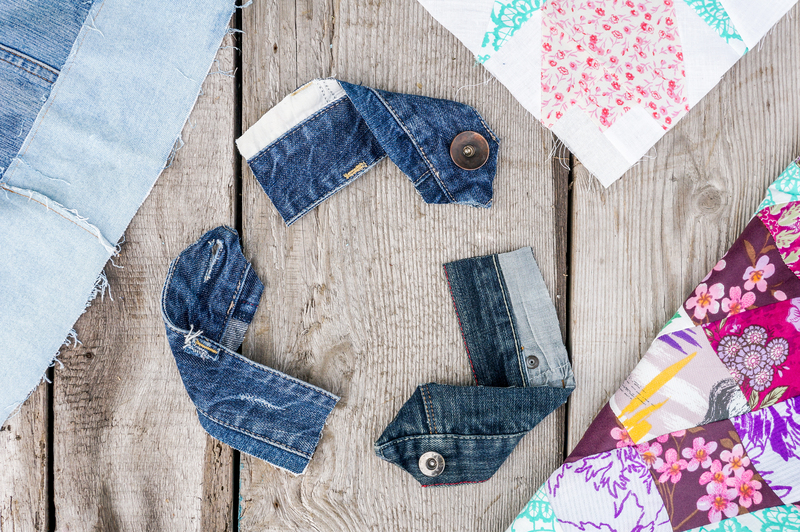Choosing Rubbish Removal Bags Makes Cleanup Projects Easy and Efficient
Cleanup projects--whether a home declutter, garden overhaul, renovation, or construction--can quickly turn overwhelming without the right tools. One often overlooked yet essential tool? Rubbish removal bags. Opting for the right waste disposal bags can dramatically improve your project's efficiency and make the entire task seamless. In this comprehensive guide, we'll explore why choosing proper rubbish removal bags is a game changer, the benefits, types, buying tips, and best practices to help you master your next cleanup endeavor.
Why Rubbish Removal Bags Matter in Any Cleanup Project
Bagging rubbish might seem straightforward, but the choice of rubbish removal bags influences workflow, time investment, safety, and even costs. Here's why:
- Efficient containment: Quality rubbish bags help contain waste of all kinds, preventing mess and making collection easier.
- Ease of transportation: Suitable rubbish disposal sacks allow for hassle-free carriage and disposal of waste.
- Health and safety: Proper bags minimize direct contact with hazardous or sharp materials, reducing accident risks.
- Time savings: Large, tough bags reduce the number of trips needed to dispose of waste.
- Environmental responsibility: The right bags facilitate proper sorting for recycling and responsible disposal.

Types of Rubbish Removal Bags and Their Applications
Selecting the best rubbish removal bags means understanding the variety available and their intended uses. Here's a breakdown:
1. Heavy Duty Rubbish Sacks
- Material: Usually made from thick, puncture-resistant polyethylene.
- Best for: Building waste, garden refuse, sharp objects, and heavy rubbish.
- Advantages: High durability, unlikely to tear, suitable for professional and industrial use.
2. Standard Trash Bags
- Material: Medium-thickness plastic, sometimes biodegradable.
- Best for: General household and office waste.
- Advantages: Lightweight, cost-effective, ideal for everyday use.
3. Garden Waste Bags
- Material: Woven polypropylene or thick plastic, designed for outdoor conditions.
- Best for: Leaves, branches, soil, and grass clippings.
- Advantages: UV-stable, tear-resistant, often reusable.
4. Skip Bags (Bulk Bags)
- Material: Very heavy-duty woven plastic, designed to hold large amounts or bulky items.
- Best for: Large home renovations, clear-outs, or when you need a skip alternative.
- Advantages: Can be collected by waste companies, huge capacity, no need for skip permits in many areas.
5. Compostable and Biodegradable Bags
- Material: Plant-based plastics or organic polymers.
- Best for: Food scraps, garden cuttings, and organic waste.
- Advantages: Environmentally friendly, break down in compost or landfill.
How to Choose the Right Rubbish Removal Bags for Your Needs
Not all rubbish removal bags are created equal. Your project type, waste volume, and materials determine the ideal bag. Consider these factors:
1. Volume and Bag Size
- Small cleanups--kitchen waste or decluttering small spaces--can usually be managed with 30-50 litre bags.
- Medium projects, like garden work or garage clear-outs, often require 70-120 litre bags.
- Major renovations or commercial jobs may demand bulk bags or multiple heavy duty sacks.
2. Strength and Thickness
- Lightweight bags suffice for paper, plastic, or clothes.
- Heavy duty rubbish bags are indispensable for rubble, wood, glass, or sharp debris.
- Thickness is measured in microns or mils--higher equals stronger.
3. Environmental Impact
- Select compostable or biodegradable bags for organic waste or to lower your carbon footprint.
- Reusable woven polypropylene bags can be used multiple times, further reducing waste.
4. Closure Type
- Drawstring bags are convenient for quick seal and carry.
- Tie-top and flap-tie bags offer secure closure; essential if you're managing food waste or liquids.
- For large volume or industrial bags, strong ties or even cable ties may be necessary.
Benefits of Using Proper Rubbish Removal Bags
Why bother investing in the right waste disposal bags? The advantages go beyond mere convenience:
- Cleanliness: Prevents rubbish from spilling or leaking, maintaining tidy sites.
- Efficiency: Makes loading, unloading, and disposal quicker and smoother.
- Safety: Reduces contact with harmful substances and minimises injury from sharp waste.
- Compliance: Helps you comply with council, commercial, or environmental regulations on waste.
- Eco-friendliness: Facilitates recycling and makes it easy to follow proper waste separation.
Comparing Rubbish Removal Bags to Other Container Solutions
Why not just use bins, skips, or boxes? Let's see how rubbish removal bags compare:
- Cost: Bags are significantly cheaper than skip hire or buying extra bins.
- Flexibility: Bags can be used anywhere--indoors or out, on rugged or difficult terrain.
- Space-saving: Unlike skips or bins, bags require no significant space when not in use.
- Ease of disposal: Many councils and rubbish removal companies now offer collection for skip bags or sack-based waste.
In sum, rubbish removal bags provide a convenient, space-efficient, and low-cost option--for individuals, families, builders, or gardeners alike.
Best Practices for Using Rubbish Bags Efficiently
If you want to make cleanup projects easy and efficient, follow these top tips:
- Don't overload: Overfilling bags makes them hard to move and more likely to split.
- Separate by type: Keep recyclables, compost, hazardous, and general waste in separate bags.
- Double-bag sharp rubbish: For glass, ceramics, or metal, use two layers to avoid tears.
- Use colour-coding: Assign colours for different waste types to make sorting and disposal easier.
- Securely close bags: Tie all bags tightly for safe pickup and transport.
- Store bags away from pets and children: Especially with hazardous materials, keep bags out of reach.
Special Tips for Large Projects
- For renovations or builds, plan for large-capacity bags from the start and ensure you have enough on site.
- When clearing overgrown gardens, pick puncture-resistant garden bags that stand upright for easy loading.
- If expecting weather exposure, choose UV-stabilized or waterproof bags.
Eco-Friendly Alternatives and Sustainable Disposal
As environmental concerns grow, so does the range of eco-friendly rubbish removal bags. Consider these sustainable choices:
- Biodegradable & compostable bags: Perfect for green waste, these break down naturally in landfill or compost heaps.
- Reusable bulk bags: Washable and built for years of repeated use.
- Recycled material bags: Look for bags produced from post-consumer recycled plastic.
Pair sustainable bag choices with responsible disposal. Engage with waste contractors who recycle or compost, and always check your local council's guidelines for waste separation.
Tips for Buying Rubbish Removal Bags Online
Online retailers offer a broad selection of rubbish removal bags at competitive prices. For the best results, follow these shopping tips:
- Read product reviews: Learn from others' experiences regarding strength and reliability.
- Check bag dimensions: Photos can be misleading--review the volume and thickness in the product specs.
- Buy in bulk for savings: Significant discounts are available for multi-pack or wholesale purchases.
- Consider eco credentials: Check for compostable, biodegradable, or recycled material certifications.
- Review brand reputation: Established brands usually offer consistent quality and customer service.
If working on a large-scale project, consider contacting suppliers directly for trade rates or customized solutions--including bespoke bag sizes and print branding.

FAQs: Rubbish Removal Bags & Smart Cleanup Strategies
What size rubbish removal bag do I need?
Match bag size to waste volume--a standard kitchen cleanup may use 30-50L bags, larger projects (demolition, moving house) may require up to 120L sacks or even bulk/skip bags.
Are garden waste bags different from standard rubbish bags?
Yes! Garden bags are generally tougher and larger, designed to withstand sharp branches and heavy, wet waste.
Can rubbish removal bags be recycled?
Some bags--especially those made from polyethylene or recycled plastic--are recyclable. Check local guidelines and separate correctly. Compostable bags need organic recycling or compost sites.
Can I use rubbish bags for commercial projects?
Absolutely. For offices, retail, construction, or renovations, select heavy-duty sacks or bulk bags that meet your waste volume and regulations.
Is it safe to use rubbish bags for hazardous waste?
Use bags designed specifically for hazardous materials--often colour-coded and labelled. Always seal tightly and follow your area's safety and disposal protocols.
Conclusion: The Smart Choice for Efficient Cleanup
Choosing rubbish removal bags suited to your project is the key to a tidy, efficient, and stress-free cleanup--whether at home, in the garden, or on a construction site. The right waste disposal bags minimize risks, save time, and contribute to responsible waste management. From standard bin liners to industrial-strength sacks and eco-friendly solutions, there's a perfect bag for every cleanup challenge.
Make your next cleanup easy and efficient--invest in the appropriate rubbish removal bags, follow best practices, and enjoy a cleaner, safer environment. Start your project equipped for success today!